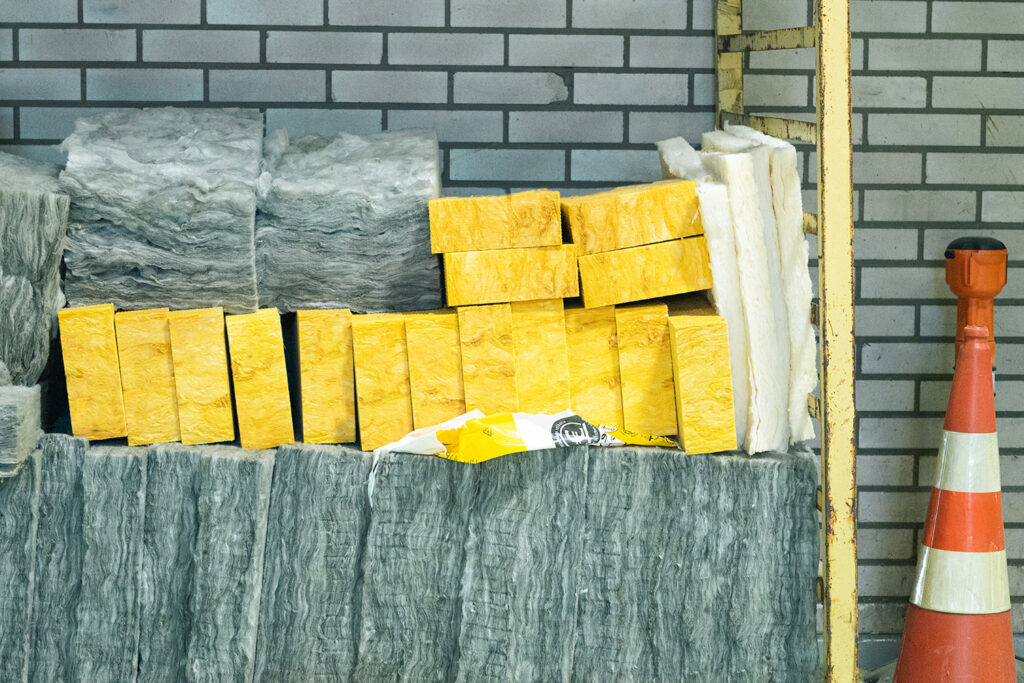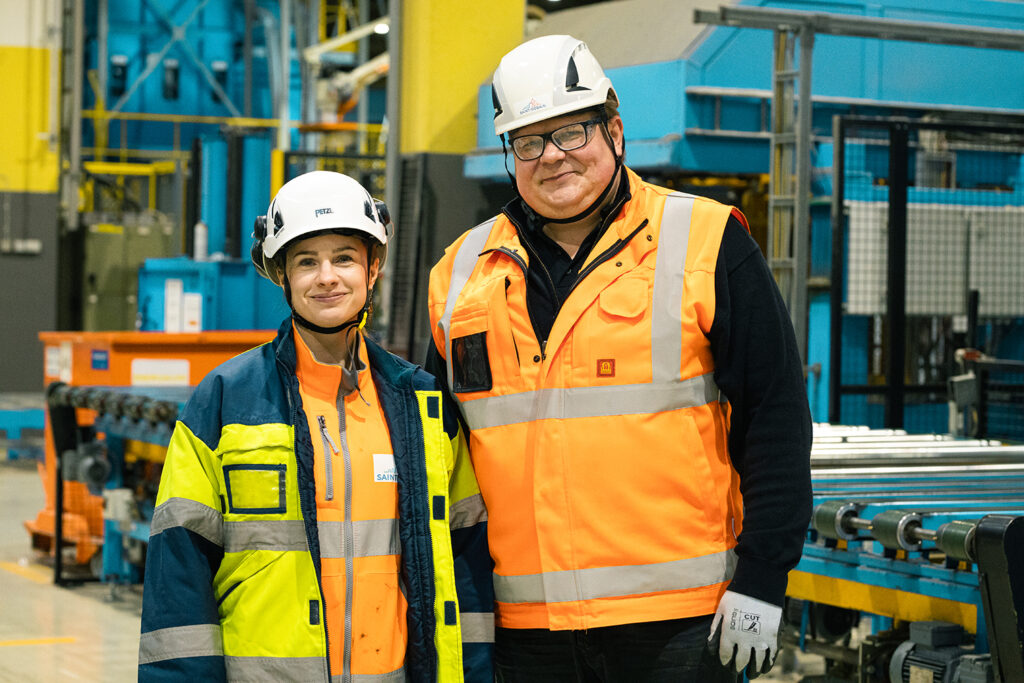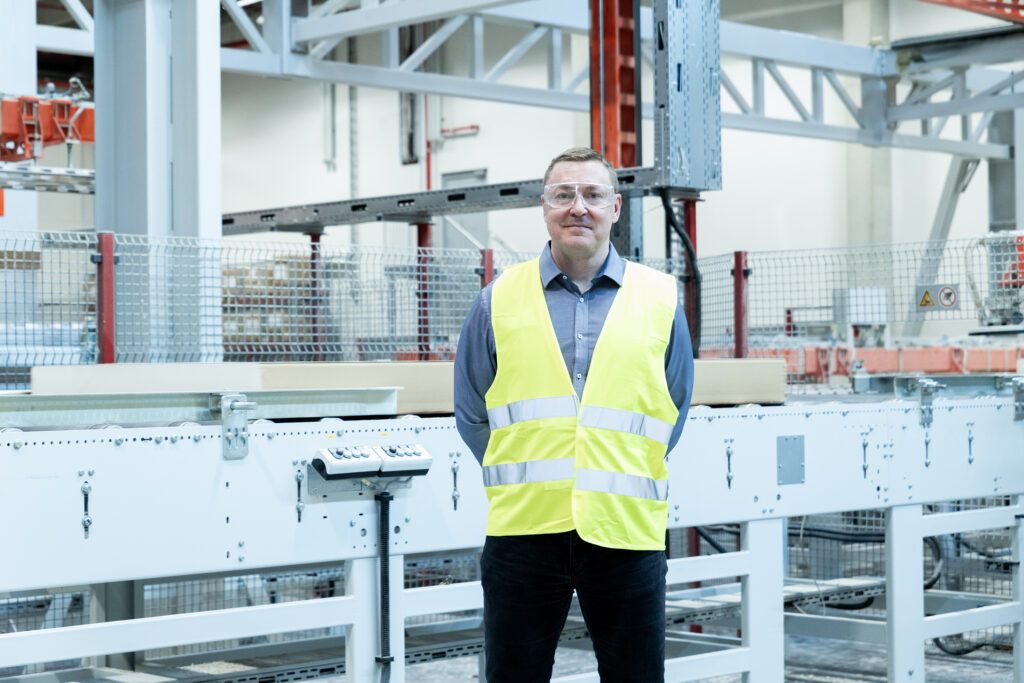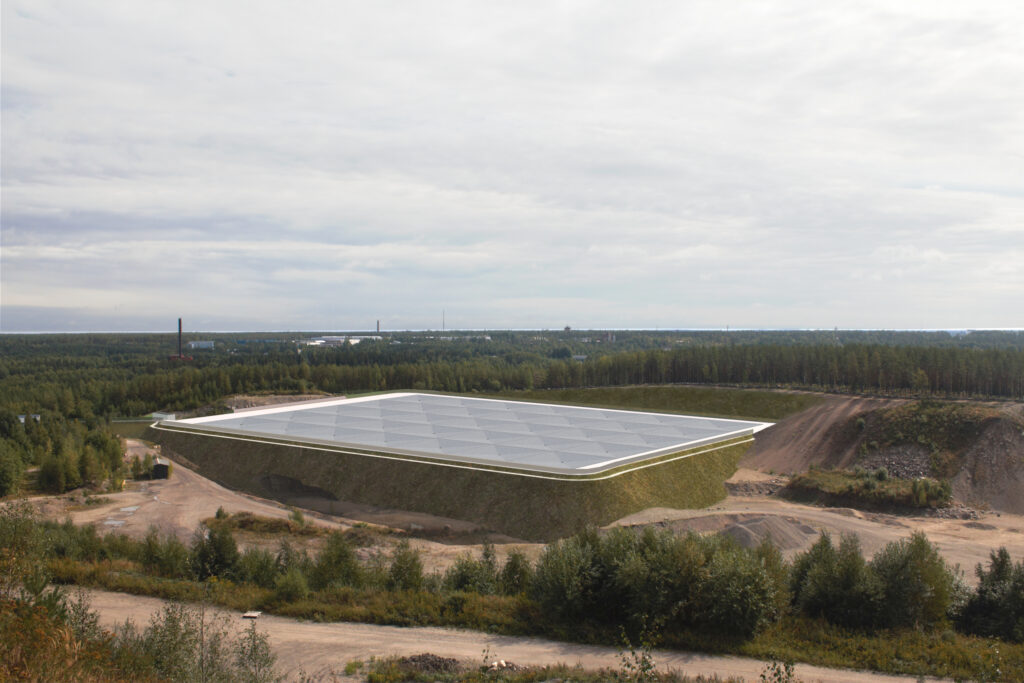Saint-Gobain, a leader in sustainable construction solutions with 160,000 employees worldwide, is acting purposefully in the field of circular economy and energy efficiency. Its’ Hyvinkää Isover glass wool plant exemplifies how industrial operations can be both economically viable and environmentally responsible. Through its innovative production processes, commitment to the circular economy, and strong community ties, the plant is setting a benchmark for sustainability in the insulation industry.
A Pioneer of Recycled Glass and Sustainable Innovations
The plant operates continuously, 24/7, ensuring a steady supply of insulation materials. The process begins with the melting of raw materials in an electric furnace, which uses certified emission free electricity. “The process is highly automated, which allows for an optimal number of personnel,” says Plant Director Juha Standberg.
Once melted, the glass is spun into fine fibres using high-speed spinners. These fibres are then bonded together to form glass wool. The plant’s advanced automation systems ensure precision and consistency, resulting in high-quality products that meet stringent industry standards.
Remarkably, main raw material used is recycled glass reaching up to 80% of the raw materials used in glass wool production, making Isover the largest user of recycled glass in Finland. The plant receives two truckloads of recycled glass daily, equivalent to approximately 160,000 of wine bottles. This glass is sourced from various regions, including Finland, Estonia, and other Nordic countries. The use of recycled glass not only reduces the need for virgin raw materials but also supports local recycling initiatives.
In addition to using recycled glass, the plant is implementing several energy-saving projects. “One ongoing project involves heat recovery from the furnace exhaust. The hot air, which is between 200-400°C, is captured and used to preheat the incoming air for the furnace hall, reducing our gas consumption,” explains Heli Saarnivuo, the plant’s development engineer. “We also use heat pumps to recover heat from process water, which is then used to heat the facility.”

Local cooperation as a resource
Saint-Gobain Isover’s success in Hyvinkää is also attributed to its strong collaboration with local educational institutions and community stakeholders. The plant works closely with local schools and
universities, offering internships and training programs that help develop the next generation of engineers and technicians. This collaboration ensures a steady pipeline of skilled workers who are well-versed in the latest technologies and sustainable practices.
“We actively collaborate with educational institutions, especially in the electrical field, where we have many students,” says Juha Standberg. “We also prioritize using local suppliers whenever possible, as it is our principle.”
Additionally, the plant is exploring partnerships with local energy companies to further enhance its sustainability efforts. “We are investigating a collaboration with Hyvinkään Lämpövoima to utilize waste heat for district heating, which would further reduce our environmental impact,” Heli Saarnivuo adds.
Looking ahead, Saint-Gobain Isover is poised to continue its leadership in sustainable insulation solutions. The Hyvinkää plant is set to undergo several upgrades, which will not only improve the plant’s operational efficiency but also reduce its environmental footprint.
“Additionally, we plan to convert our curing oven from gas to electric, which will significantly reduce our carbon footprint. We are also optimizing the binders used in the manufacturing process to switch to 100% bio-based binders,” says Juha Standberg.
As the world moves towards a more sustainable future, the Hyvinkää plant stands as a shining example of what can be achieved through dedication, innovation, and collaboration.entire European innovation ecosystem and enables the development of facilities in carbon capture.

Saint-Gobain
Saint-Gobain Finland Oy is part of the international Saint-Gobain Group, the world’s leading supplier of construction products. Saint-Gobain designs, manufactures and distributes construction materials, products and solutions that enhance the well-being of society; improving people’s daily quality of life and meeting the challenges of future generations by acting responsibly.
Text: Katja Humalainen
Photos: Katja Humalainen

